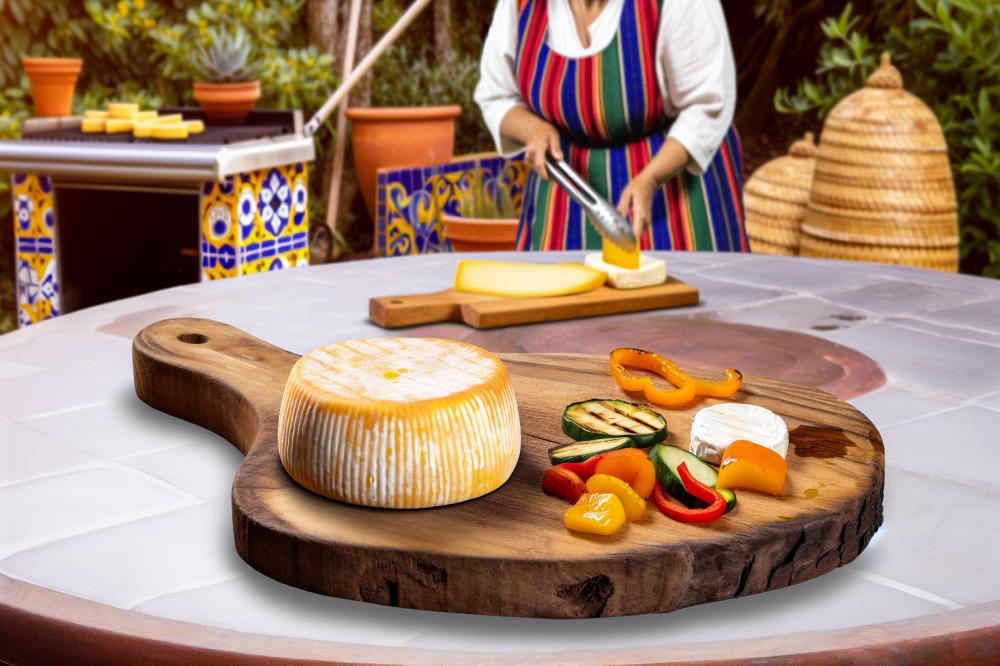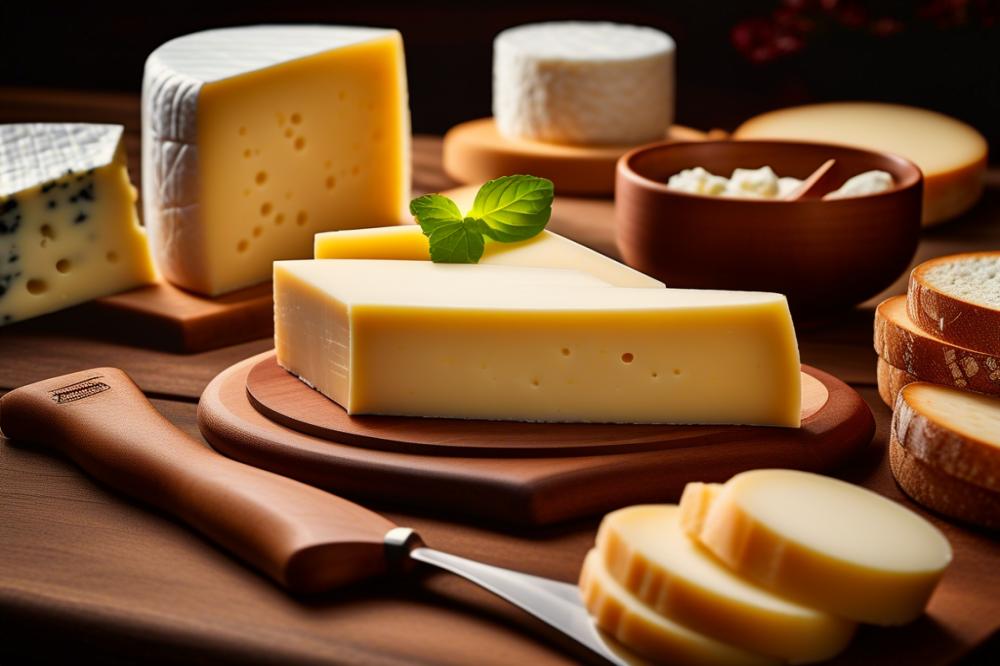Overview of cheeseofchoice.org/the-impact-of-geography-on-portuguese-cheese-varieties”>Queijo de Serpa and its Significance in Portuguese cheese Culture
Cheese lovers around the world know that Portugal is home to some remarkable dairy products. One standout is Queijo de Serpa, a traditional cheese from the Alentejo region. This cheese showcases what makes Portuguese cheese culture so compelling. Its creamy texture and distinct flavor come from centuries of traditional crafting methods. Local shepherds have passed down their techniques for generations, making it a significant part of the area’s identity.
PDO Status, or Protected Designation of Origin, plays a vital role in preserving regional products like this cheese. This status provides legal protection, ensuring that only cheese made in the designated area can carry the name. It not only safeguards the recipe but also the cultural heritage behind it. For consumers, PDO Status signifies quality and authenticity. Many people are willing to pay more for products that come from trusted sources. This status helps small producers by giving their products more recognition in a competitive market.
In essence, Queijo de Serpa is more than just a cheese; it’s a story of tradition, culture, and passion. Gaining PDO Status was not just about meeting regulations. It was a way to honor the hard work and dedication that goes into making each wheel of cheese. As we explore how this cheese achieved such a prestigious title, we will uncover the deeper connections between food, place, and community. Understanding this cheese and its recognition opens a window into the rich tapestry of Portugal‘s culinary landscape.
Queijo de Serpa
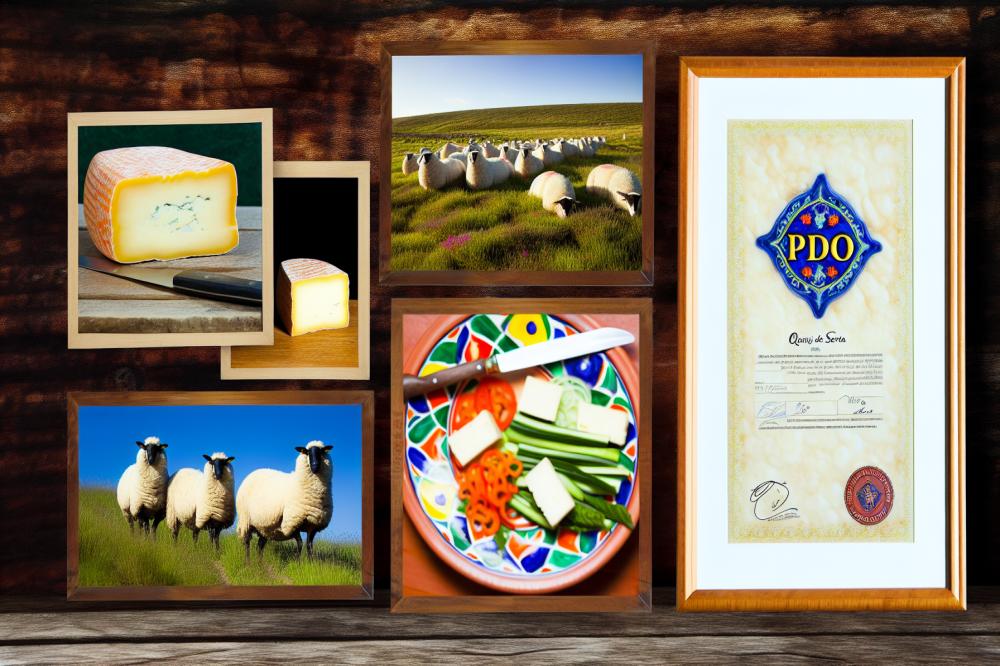
Queijo de Serpa is a traditional cheese from the Alentejo region in Portugal. Rich in history, its roots can be traced back for centuries. The production of this cheese is an art, refined over generations. Made primarily from the milk of local sheep, it reflects the region’s agricultural practices. The unique flavors come from the specific breeds of sheep raised in the area.
Strong ties to local traditions define this cheese. Craftsmen use time-honored methods to produce it. Curds are gently heated and then molded into shape. Afterward, the cheese is salted and aged, developing its characteristic taste. The aging process allows Queijo de Serpa to gain a creamy texture and a complex flavor profile. It’s a sensory delight for those who enjoy cheese.
Local sheep breeds play a vital role in this cheese’s identity. Sheep in this region thrive in the unique climate and landscape. Their milk possesses a richness that cannot be replicated. This distinctiveness contributes to the cheese’s overall quality. Farmers often raise these animals with care, ensuring traditional grazing methods are followed.
In comparison with other Portuguese cheeses, Queijo de Serpa stands out. It has a more robust flavor than many others, often highlighting earthy notes. Some cheeses are firmer and sharper, but not this one. Its creamy profile offers a comforting experience. This cheese pairs beautifully with local wines and rustic bread, making it perfect for sharing.
Overall, Queijo de Serpa represents the heart of Portuguese cheese-making. Its rich heritage and local production methods contribute to its esteemed reputation. For cheese lovers, it offers a taste of the region’s culture and agricultural pride. Each bite tells a story of tradition, care, and dedication to craft.
PDO Status
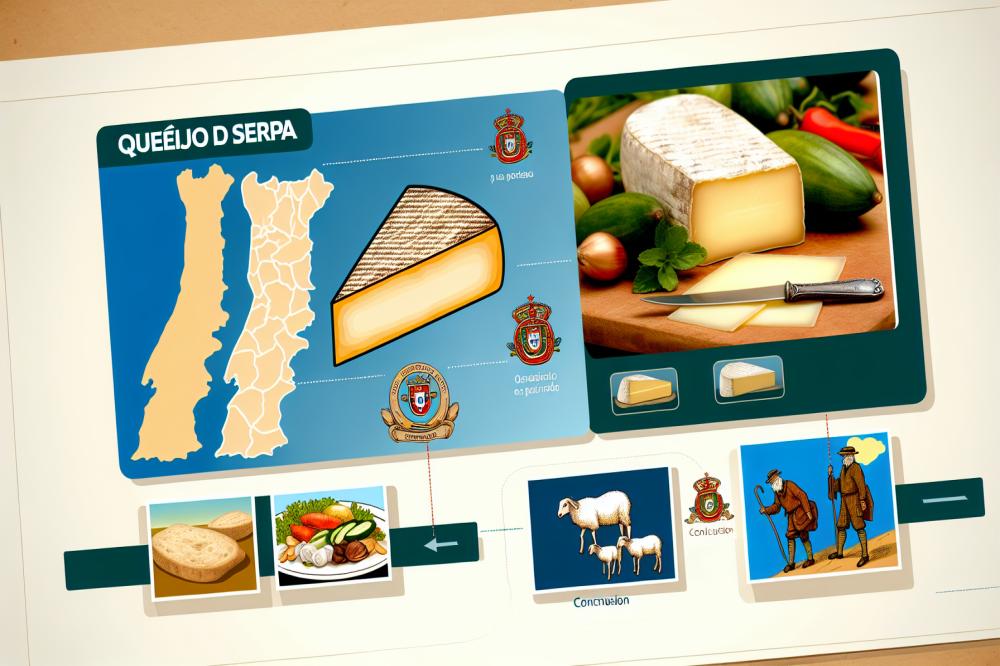
PDO stands for Protected Designation of Origin. This label is a mark of quality. It recognizes products that come from specific regions, made using particular methods. To achieve this status, a product must meet strict criteria. These include being produced in a defined geographical area and using traditional techniques.
The journey for Queijo de Serpa began with a dedication to quality. Local producers embraced traditional methods passed down through generations. They gathered to document these practices. A formal application was then submitted to the European Union. This step required significant evidence of the cheese’s historical importance and its unique characteristics.
Once the application was in, an evaluation began. Experts reviewed the production processes. They checked if the cheese was being made in the right area. After several assessments, PDO status was granted. This marked a significant achievement for local producers.
For the producers, PDO status brings many benefits. It helps them preserve their craft. The designation signals authenticity, allowing consumers to trust what they buy. Shoppers can be confident that they are getting quality products. This assurance can create a stronger bond between producers and their customers.
Consumers also win with PDO recognition. Knowing that a product meets specific standards can enhance the buying experience. Many people value traditional foods and appreciate supporting local artisans. That connection to heritage adds to the overall enjoyment of the product.
Recipe: Queijo de Serpa and Grilled Vegetable Platter
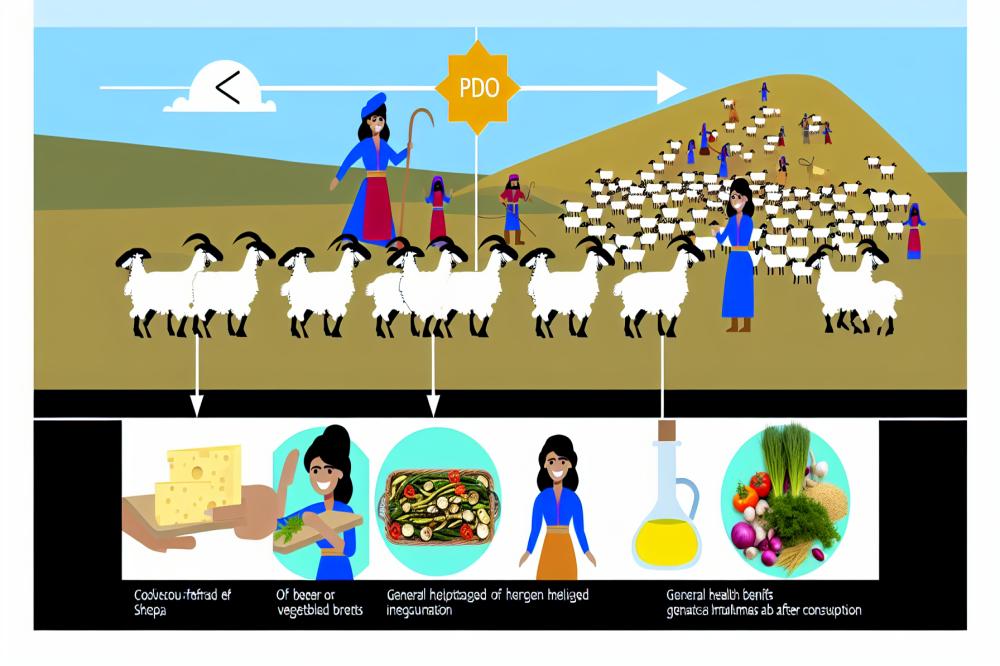
Ingredients
- 250g Queijo de Serpa
- 2 medium zucchini, sliced
- 1 red bell pepper, cut into strips
- 1 yellow bell pepper, cut into strips
- 1 eggplant, sliced
- 1 medium red onion, quartered
- 4 tablespoons olive oil
- 1 teaspoon dried oregano
- 1 teaspoon salt
- Freshly ground black pepper to taste
- Fresh basil leaves for garnish
Recipe Instructions
Start by preheating your grill to medium-high heat. While the grill heats up, prepare the vegetables. In a large bowl, combine the sliced zucchini, bell peppers, eggplant, and onion. Drizzle with olive oil and sprinkle with oregano, salt, and pepper. Toss the vegetables to coat them evenly.
Place the seasoned vegetables directly on the grill. Cook each side for about 4-5 minutes or until they become tender and have nice grill marks. This usually takes about 15 minutes in total. Once grilled, remove them from the grill and set aside.
Slice the sheep’s milk cheese into thick wedges. Grill these wedges for about 2-3 minutes on each side, just until they start to melt slightly and develop a lovely char. Remove from the grill carefully.
To serve, arrange the grilled vegetables on a large platter. Top them with the warm grilled cheese. Garnish with fresh basil leaves. Pair this dish with crusty bread or crackers to complete the experience. A glass of red wine complements it perfectly!
Nutritional Information
Each serving of this delightful platter contains approximately 350 calories. Expect about 21 grams of protein from the cheese and vegetables. Total fat rounds out to 22 grams, with healthy fats coming from olive oil. Each serving offers essential vitamins A, C, and E, along with beneficial antioxidants from the colorful vegetables.
Health Benefits
Enjoying sheep’s milk cheese can be beneficial for those who are lactose sensitive, as it is often easier to digest. Its rich protein content provides energy and supports muscle health. Grilled vegetables also offer a wealth of nutrients. They are packed with vitamins and minerals, promoting overall wellness.
Consuming this platter may boost digestive health due to fiber-rich vegetables. This supports regularity and nutrient absorption in the body. The combination of vibrant veggies with cheese creates not just a feast for your taste buds but also a nutritious experience. Dive into this wholesome dish for a delightful treat!
Final Thoughts on Queijo de Serpa’s PDO Success

Achieving PDO status is a major accomplishment for this beloved cheese. It highlights the rich traditions and practices that have shaped its production. This recognition not only elevates the quality of Queijo de Serpa but also promotes the cultural heritage of Portugal. By protecting the methods used, we can appreciate a product that is deeply connected to its region.
Exploring Portuguese cheeses offers a delightful journey through flavors and textures. Each variety holds a unique story, reflecting local ingredients and artisanal techniques. Supporting local producers means more than just enjoying a tasty snack; it is about preserving these age-old traditions.
Choosing to buy artisanal cheese helps small farmers sustain their livelihoods. Family-owned farms often prioritize quality over quantity, which results in a superior product. As consumers, we have the power to make a difference by choosing to enjoy these high-quality, local options.
Encouragement to dive deeper into the world of Portuguese cheeses can lead to exciting discoveries. Each bite not only tantalizes the taste buds but also connects you to the land and its people. Enjoy the experience. Seek out local specialties and share them with friends and family. Celebrate the uniqueness of each cheese, and relish in the stories they tell.

